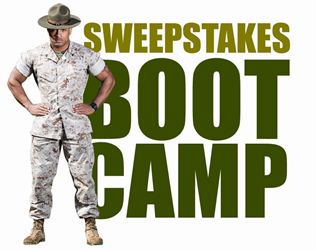A picture is worth a thousand words, but a picture of your customers using your product may be worth thousands of new buyers. In the past, photo contests usually cropped up as “cutest baby” or “best picture of the year” competitions. But all of that has changed. Over the past few years, photo and video contests are commonplace, particularly with Internet-based promotions. Today’s photo contests often focus on pictures of consumers using a sponsor’s products in their everyday life.
One reason for the increase in photo contests is the smart phone. It is reported that nearly 50 percent of U.S. consumers now are using smart phones. This has resulted in a huge number of people having immediate access to quite sophisticated photo and video capabilities. The widespread availability of these cameras — and their relative simplicity — has made contests on the internet more popular than ever for consumers. The ease with which the photos or videos can be uploaded to a sponsor’s website and used in its marketing strategy make it even more popular with sponsors.
Although these types of contests are becoming somewhat ubiquitous, they have certain inherent potential problems that you should pay attention to, including the following.
Copyrights
Most contests’ official rules will require that the entrant own the copyright to any photos that they submit. Ensuring that your company has the right to use the copyrighted photo is imperative. Many companies are sponsoring photo contests to obtain visuals that can be used to market their product or services. But for sponsors to legally use a photo submitted by an entrant in a contest, they must obtain authorization from the person who took the picture. Three of the most common ways to do that (ranked according to their reliability) are:
- including a provision in the contest official rules that all entrants (or winners) agree to allow a sponsor to use the photo for marketing purposes;
- adding a box that entrants must click affirming that they agree to allow the sponsor to use their photos; and
- send the entrant a written license agreement and ask them sign it and return it to the sponsor.
Remember that some state laws may not allow one or more of these options, depending on the particular situation.
Inappropriate Photos
Another inherent concern is whether the photo or video that is submitted is appropriate for the contest and its entrants. Most official rules spell out that the photo entry will be rejected and the entrant disqualified if the photo:
- Is vulgar, contains improper language, nudity, etc.
- Is derogatory, hateful, or racist;
- Violates another person’s commercial property rights;
- Violates another individual’s privacy or publicity rights;
- Was taken by a professional photographer – unless professionals are specifically included in the eligibility requirements.
Make sure your promotion’s official rules and affidavit of eligibility limit the type of photos that will be accepted, and that the sponsor has the sole authority to reject photos it considers inappropriate.
This post is part of our 2013 Sweepstakes Boot Camp series.
Click here to see all Boot Camp posts.
This post was written by retired Thompson Coburn partner Dale Joerling. If you have any questions about the topics discussed in this post, please contact Thompson Coburn partner Hap Burke.




